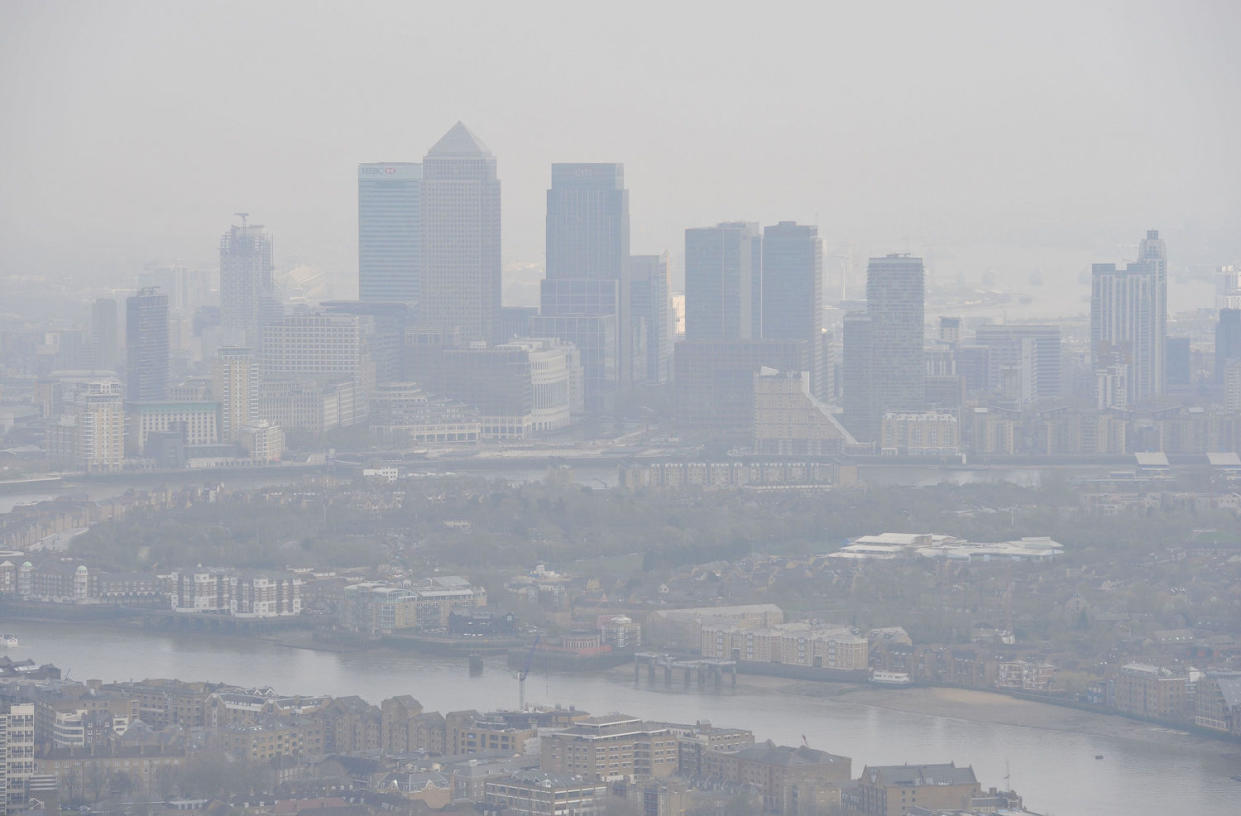Warning that air pollution could kill 160,000 people in the next decade through strokes and heart attacks

More than 160,000 people could die in the next decade from strokes and heart attacks caused by air pollution, a charity has warned.
The British Heart Foundation (BHF) said there are an estimated 11,000 such deaths per year at the moment but that this will rise as the population continues to age.
It would mean the equivalent of more than 40 heart and circulatory disease deaths related to air pollution every day.
It follows a report published in November that estimated air pollution is killing thousands of people in the UK every year.
Air pollution has also been linked to an increased risk in depression and suicide.
The charity has called on the UK to adopt World Health Organisation (WHO) guidelines on air pollution and meet them by 2030.

Current EU limits – which the UK comfortably meets – for “fine particulate matter” (PM2.5) air pollution are 25 micrograms per metre cubed as an annual average. The WHO limits are tougher – at 10 micrograms per metre cubed as an annual average.
The BHF said PM2.5 can have a "seriously detrimental effect to heart health", increasing the risk of heart attack and stroke and making existing health problems worse.
Jacob West, executive director of healthcare innovation at the BHF, said: "Every day, millions of us across the country are inhaling toxic particles which enter our blood and get stuck in our organs, raising our risk of heart attacks and stroke.
"Make no mistake – our toxic air is a public health emergency, and we haven't done enough to tackle this threat to our society.
Read more
How dangerous is the air where you live? UK's most polluted towns and cities revealed
Air pollution on London Underground '15 times worse than above ground'
Your exposure to air pollution could be much higher than your neighbour's – here's why
"We need to ensure that stricter, health-based air quality guidelines are adopted into law to protect the health of the nation as a matter of urgency.
"Clean air legislation in the 1950s and 1960s, and more recently the smoking ban in public places, show that government action can improve the air we breathe.
"Decision-makers across the country owe it to future generations to help stop this alarming figure from becoming a reality.
"That's why we are urging people to contact their MP and demand a change in the law."

In July 2019, the Department for Environment and Rural Affairs published a study showing that meeting WHO guidelines on air pollution is "technically feasible" in most areas of the UK by 2030.
The BHF has launched a new campaign, You're Full Of It, to highlight how people are inhaling dangerous levels of PM2.5 in towns and cities across the UK every day.
NHS medical director Professor Stephen Powis said: "The climate emergency is also a health emergency, with thousands of avoidable deaths and hospital admissions every year linked to air pollution, which is why the NHS is playing its part by taking action to reduce carbon emissions, including by cutting traffic by reducing the need for millions of hospital appointments through better services.
"With air pollution contributing to around 40,000 deaths a year and four in 10 children at school in high-pollution communities, it's clear that tackling air pollution needs to be everyone's urgent business."


